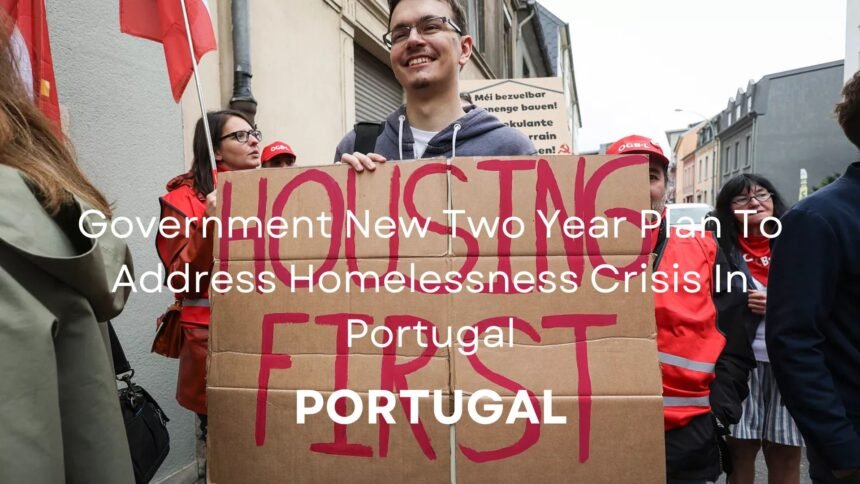Portugal government has shared its new plan to help the country homelessness population. This strategy is led by Minister of Labour, Solidarity, and Social Security Maria Rosário Palma Ramalho. He promises to tackle the problem with clear steps. It comes after recent data showed a rise in the number of homeless people.
Read More About: Portuguese Police Dismantle Europe Largest Cocaine Laboratory In Pacoba Operation
Government Plan For Homelessness In Portugal

A new survey shows that 13,128 people in Portugal are homeless. This was 2,000 less homless in 2022. Most of them live in the Lisbon area which has 4,871 homeless individuals. Other regions like the North (2,700), Alentejo (2,397), the Centre, and the Algarve also face challenges.
The reported cases of homelessness are 167 out of 277 municipalities that took part in the survey. This means that about 60% of Portugal’s municipalities are dealing with this issue. The figures highlight how urgent it is to act.
The government has drafted a new national strategy which is now in the legislative process.
Minister Palma Ramalho said:
I am very pleased to announce that this strategy is already in the legislative circuit, so it will be considered by the Council of Ministers very soon
The plan includes a two year action program. Its main goals are to reach more people, prevent homelessness, monitor the problem better, and help people find stable housing faster.
The minister’s announcement came after President Marcelo Rebelo de Sousa called for clarity on the government strategy. He stressed the need for action on homelessness in a podcast.
President Marcelo has long been concerned about homelessness. He said back in 2018 that he hoped that most homeless people in Portugal would have housing, healthcare, and jobs by 2023. This goal has not been met.
Why Has Homelessness Increased In Portugal
Portugal’s previous strategy was introduced in 2018 and had a budget of €60 million. It focused on housing, healthcare, and job support. But the number of homeless people has continued to grow.
Minister Palma Ramalho said the problem has become more complex. she explained:
It’s true that a national homelessness strategy is still in place, but unfortunately this strategy hasn’t managed to prevent an increase in homelessness, nor has it, in this government’s view, kept pace with this phenomenon of diversification. Today we have homeless people who have jobs, which was unusual (in the past). We have entire families and many foreigners, which was also unusual (in the past)
Rising housing costs and a lack of affordable homes have made the situation worse.
Shelters For Immediate Help
The government opened a new temporary accommodation centre in Lisbon. This shelter is for people who have become homeless recently or those with some income who cannot afford housing. Many of these individuals earn money but still cannot find a place to live due to high rents.
The centre offers not only a roof but also a chance for stability. The government hopes to stop homelessness from becoming a long term problem.
The Two-Year Action Plan
The new plan includes several key steps. It will improve outreach to help communities find and support people at risk of losing their homes. It will also use better data to track progress and adjust efforts as needed.
The plan will offer more shelters, mental health care, and job training programs to meet individual needs. Finally, it aims to speed up integration by helping people move quickly into permanent homes and stable jobs.
These measures aim to solve both immediate problems and long term challenges. They show the government understanding that homelessness is a complex issue that requires many solutions.
Homelessness is not unique to Portugal. Many countries face similar issues due to rising housing costs and economic inequality. The lack of affordable housing and the high cost of living are important factors of homelessness in Portugal
The government’s new plan follows international practices. It focuses on prevention, early action, and coordinated support. This strategy hopes to have a long-term impact by resolving both the causes and consequences of homelessness.
Portugal’s new strategy offers hope in the fight against homelessness. The plan success will depend on how well it is put into action. Local governments, non-profits, and communities will need to work together.






